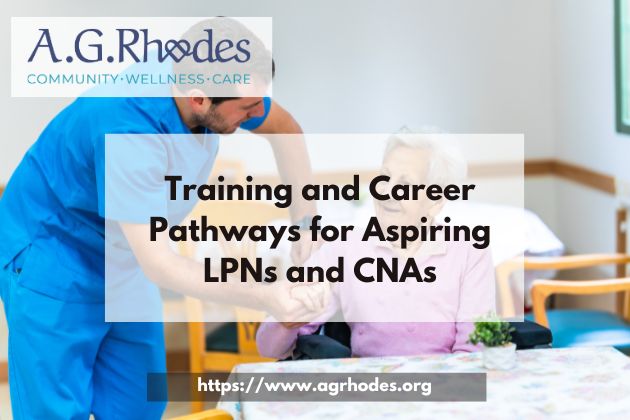
In this blog, we’ll explore the training requirements, career pathways, and opportunities for aspiring LPNs and CNAs.
Understanding the Roles
Certified Nursing Assistant (CNA)
CNAs provide basic care to patients, such as helping with bathing, dressing, feeding, and mobility. They work closely with nurses to ensure patients’ comfort and safety.
Licensed Practical Nurse (LPN)
LPNs take on a wider range of responsibilities, including administering medications, monitoring vital signs, dressing wounds, and communicating with families and doctors. They often serve as a bridge between CNAs and Registered Nurses (RNs).
Training Requirements for CNAs
CNA programs are typically short — many can be completed in 4–12 weeks through community colleges, vocational schools, or healthcare organizations. Training covers:
- Basic patient care skills
- Infection control and safety procedures
- Communication and documentation
- Hands-on clinical practice
After completing the program, candidates must pass a state certification exam to become licensed CNAs.
Training Requirements for LPNs
Becoming an LPN usually requires 12–18 months of training in a state-approved practical nursing program. These programs are offered through community colleges or technical schools and include:
- Anatomy and physiology
- Pharmacology
- Nursing fundamentals and clinical practice
- Pediatric, geriatric, and mental health nursing
Graduates must pass the NCLEX-PN (National Council Licensure Examination for Practical Nurses) to obtain licensure.
Career Pathways and Opportunities
Step 1: Gaining Experience
Many aspiring LPNs start their careers as CNAs to build hands-on experience. This pathway helps develop confidence and provides exposure to real-world patient care.
Step 2: Continuing Education
After gaining experience as a CNA or LPN, you can advance to become a Registered Nurse (RN) by enrolling in bridge programs (CNA-to-LPN or LPN-to-RN). These programs can open doors to leadership roles, higher salaries, and specialized fields like rehabilitation nursing or gerontology.
Step 3: Specialization
LPNs and CNAs can also seek additional certifications in areas such as wound care, dementia care, or rehabilitation therapy to enhance their skills and marketability.
Why Choose a Career as an LPN or CNA
- Job Security: Demand for LPNs and CNAs is growing due to the aging population.
- Flexibility: Many facilities offer flexible shifts, making it easier to balance work and family life.
- Personal Fulfillment: These roles allow you to build meaningful relationships with patients and play a vital role in their recovery and daily well-being.
Final Thoughts
Whether you start as a CNA or pursue LPN training right away, both career paths offer excellent entry points into healthcare and opportunities for growth. By taking advantage of training programs and continuing education, aspiring nursing professionals can build a long, fulfilling career caring for others.
Interested in starting your journey? Research local CNA and LPN programs in your area, connect with nursing mentors, and take the first step toward a rewarding future in senior care.

